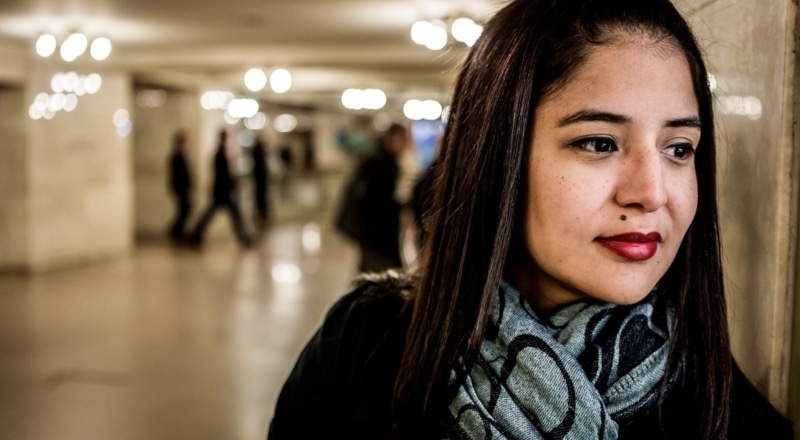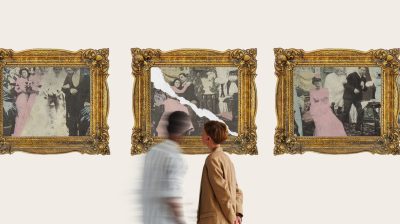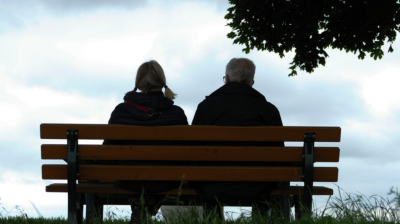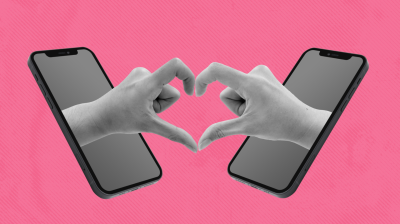How my focus on healthy eating eventually became unhealthy
Sheila shares their journey with Orthorexia, how she realised it was an issue for her and how she reached out for help

TW // This article references an eating disorder. Contact the Bodywhys helpline: 01 2107906 or [email protected]
From the age of 17 I couldn’t eat anything ‘unhealthy.’ When I say unhealthy, I mean anything that I perceived as unhealthy. I made up my own rules as to what I was ‘allowed.’ This could range from restricting sweets and treats, to deciding that something like a carrot was ‘bad.’
I never gave in to any urges I might have to eat something. My willpower always won, but that wasn’t because I had an eating disorder or a problem that was because I was so committed to being healthy… or so I thought.
When my family would say they were having dinner there was no way I would participate because they were probably having an unhealthy dinner. Instead I would make all of my own food, bring things in Tupperware to every event and family gathering, and refuse to allow anyone to prepare food if I could not oversee it.
Recognising there was a problem
But this was not a problem, as I was eating enough to maintain my weight, I looked the same, and to the outsider I actually ate quite a lot of food. However, if you looked a little closer, or if you could see the workings of my mind, it was very clear that my thoughts, discourse, and treatment of food was very disordered and was not the way I saw those around me deal with food.
I would make up intolerances, allergies, and dietary requirements that would excuse me from eating with friends, or at events that had food provided. I am not allergic to anything, I am not a vegetarian, and there was nothing medically stopping me from participating in these events with food, except my head.
My focus on exercise
Of course as part of my healthy lifestyle I was a gym goer. Every morning I was in the gym to make sure I managed to fit in exercise before the day began, and if I had time I would go back in the evenings. Again, this was not a problem, I am sporty and I was going to the gym to clear my mind, de-stress… except it was a problem.
If I was being honest with myself at the time I would have acknowledged that I spent the whole time body checking in the mirror, feeling as though I wasn’t good enough or fit enough, or strong enough. I was comparing myself to everyone, and I was calorie counting on the machines to figure out how much I was allowed to eat that day. This is not okay, this is not healthy.
Unhelpful thoughts
These thoughts occupied my mind all day everyday. While I sat in class I calculated calories in my head, I made timetables in my mind for myself so I could fit in extra workouts, and I dreaded the end of a lecture in case someone asked me to go for a snack because I couldn’t break my healthy eating lifestyle.
I had always thought an eating disorder had to be visible because that is the way it is often portrayed but that is not true. I did have an eating disorder because they way my mind was using and dealing with food and exercise, was very disordered. I was getting help but I didn’t really believe I needed it so once I ran out of free counselling sessions I saw no need to continue.
Orthorexia in college
Orthorexia took hold throughout my time in college but I didn’t know what it was and I felt silly telling anyone I thought I might be struggling with an ED because I felt I wasn’t thin enough to justify that claim. This cycle continued and eventually it developed and I started to lose weight, then it became noticeable. Eventually it got to a point where I was on a night out and someone turned to me and said ‘Oh God, you’ve disappeared’.
This confirmed the thoughts I was having in college were getting deeper and starting to develop because I had a very set idea of what an eating disorder was and because of that I wouldn’t seek proper help. I felt unworthy of help because there are people who are in a far worse position.
I found myself in the throes of anorexia at the age of 22, and was hospitalised twice, but that’s a story for another day.
Opening up and getting help
The purpose of this piece is to share the need to allow yourself to admit that you are struggling with difficult thoughts around food, or weight or exercise and seek help early on.
I didn’t know what orthorexia was at the time so had no clue how to deal with it, or if I was justified in dealing with it. But, if you have very specific ideas as to what is a ‘good’ or ‘bad’ food, if you eliminate entire food groups, if you feel that you must exercise in order to eat or fuel your body, if you are fixated on a clean healthy lifestyle, or will only allow your body to have clean foods, then perhaps you need to reach out.
You do NOT have to look sick to be sick. Often the happiest looking people in the world are suffering with a mental health problem, in the same way that someone who is not really thin or overweight can be struggling with an eating disorder.
I wish someone could have told me that I was unwell, or that the way I viewed food and eating was not normal and I was allowed to ask for help. An eating disorder can take over your life and I am still fighting to get mine back so if you are struggling remember that you are justified to ask for help. ‘Healthy eating’ isn’t always healthy.
Feeling overwhelmed and want to talk to someone?
- Get anonymous support 24/7 with our text message support service
- Connect with a trained volunteer who will listen to you, and help you to move forward feeling better
- Whatsapp us now or free-text SPUNOUT to 50808 to begin.
- Find out more about our text message support service
If you are a customer of the 48 or An Post network or cannot get through using the ‘50808’ short code please text HELLO to 086 1800 280 (standard message rates may apply). Some smaller networks do not support short codes like ‘50808’.






